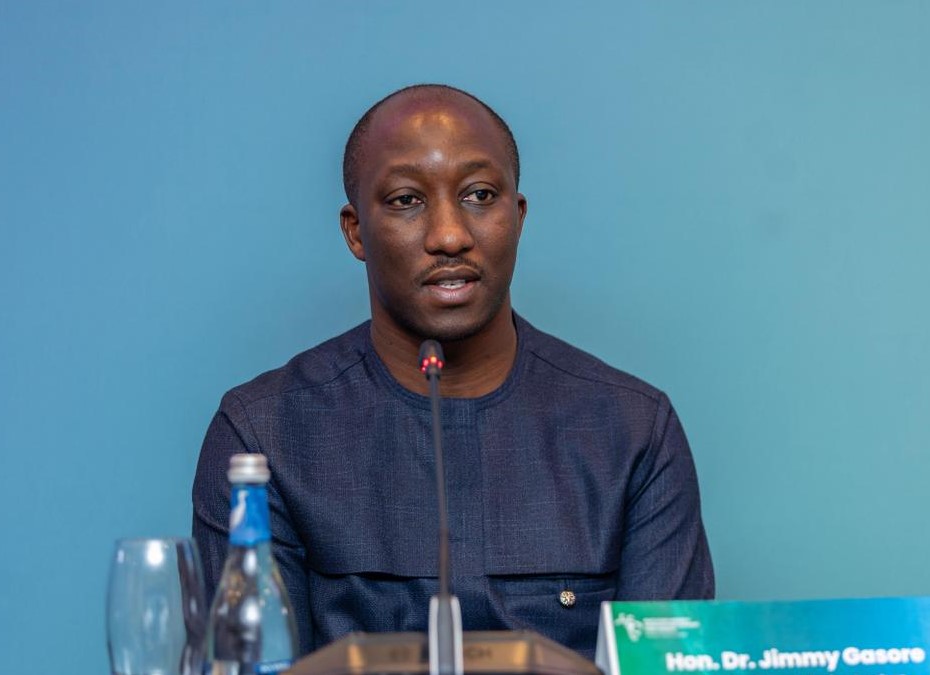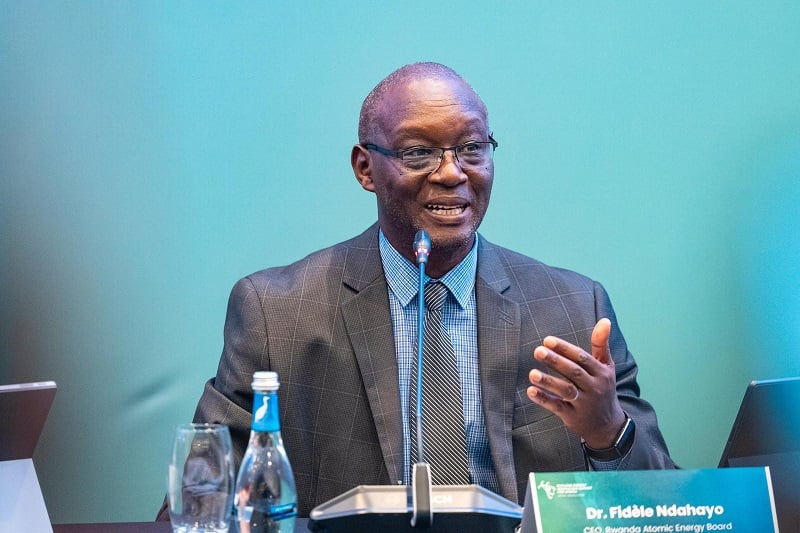African ministers, top government officials, scientists, and energy experts are set to gather in Kigali for a high-level summit focused on the future of nuclear energy across the continent.
The African Conference on the Utilization of Nuclear Energy will take place from June 30 to July 1, 2025, in Rwanda’s capital. The event will bring together stakeholders from across Africa, including representatives from international nuclear agencies and companies involved in nuclear power development.
Rwanda’s Minister of Infrastructure, Dr. Jimmy Gasore, said the conference will serve as a platform for African nations to explore how nuclear energy can help close the electricity access gap that continues to hinder development in many regions.

“This conference will bring together African energy ministers, scientists, and policymakers to look at ways we can align efforts — particularly around legal frameworks and knowledge sharing,” Dr. Gasore told reporters in Kigali on Thursday. “Several African countries already have nuclear capabilities. This is an opportunity to collaborate.”
Nuclear energy is gaining attention in Africa as a potential solution to persistent power shortages and unreliable electricity supply, which continue to affect industrial growth and everyday life in many countries.
Dr. Gasore said regional power integration will be another key discussion point, as countries work to develop interconnected electricity grids.
“When power grids are linked, it attracts more investment,” he said. “An investor in one country knows there is a larger market beyond national borders. This cooperation will help us achieve the energy security and development goals we all strive for.”
Rwanda is among a growing number of African countries exploring small modular reactors (SMRs) — compact nuclear power units that are manufactured in one location and transported for installation. These units are considered safer and more suitable for African infrastructure and energy needs.
“Most African electricity grids are not yet capable of supporting large-scale nuclear plants, which typically produce over 1,000 megawatts,” Gasore said. “SMRs, by contrast, generate around 100 megawatts or less and require less land. They also have advanced safety features that reduce the risk of harmful accidents.”
The Rwanda Atomic Energy Board (RAEB) said the country plans to establish its first small nuclear power plant by 2030 to help meet growing electricity demand and support economic development.
Director General of the Rwanda Atomic Energy Board (RAEB), Dr. Fidel Ndahayo, said the country now has a clear vision for its first nuclear plant — including the scale of electricity it will produce and potential locations for construction.

“At this stage, at least we have a direction. We can say, ‘This is the amount of power we need, this is where the plant could be built,’ and so on,” Dr. Ndahayo said.
Several potential sites have already been identified in a preliminary feasibility study, but further analysis is needed to assess land conditions, seismic risks, and other technical factors to ensure the selected site meets international standards.
The project will be based on small modular reactor (SMR) technology — compact nuclear plants that produce significant energy while requiring less space. Each reactor would occupy about 15 to 50 hectares, located at a safe distance from residential areas.
“Even though Rwanda is densely populated, we will not struggle to find 50 hectares for such an important facility,” Ndahayo said.
Ndahayo confirmed that Rwanda aims to begin electricity generation by 2030, with 234 skilled staff expected to be trained and ready by 2028.
Ndahayo said Rwanda is strategically investing early in the nuclear sector, as global interest in SMR technology grows. “We want to ensure that when these new technologies hit the market, Rwanda has a workforce that understands them — and can even help export them to other regions,” he said.
RAEB currently employs 30 to 50 nuclear science graduates, while another 200 Rwandan students are pursuing nuclear-related studies in various developed countries. Some are expected to graduate next year, others in 2027.
“We’re continuing to send more students abroad. This year alone, we plan to send more than 40,” he said. “We’ve already signed agreements with countries like Hungary, and we’re working on new partnerships with China and South Korea. Our goal is to quickly build a strong pool of skilled professionals who can operate nuclear power systems safely and effectively.
Earlier this year, President Paul Kagame underscored the importance of nuclear power, calling it a reliable and clean energy source that could play a crucial role in the global energy transition.











